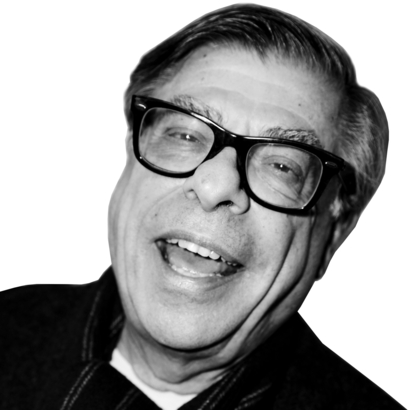Born into the highest echelons of Italian society in 1934, Marina Cicogna went on to become the first major female film producer, “not only in Italy, but anywhere,” as she notes with quiet pride today, at age 87 and still going strong. A career was not something young contesse pursued in those days, and she did it without forsaking the impeccable manners, natural style, and cool dignity of her aristocratic roots.
“Marina was always different,” says Reinaldo Herrera, a close friend since they were teenagers. “Highly intelligent, and drawn to creative people.”
Of course, she had a head start. Her maternal grandfather, Count Giuseppe Volpi, one of Italy’s richest industrialists, co-founded the Venice Film Festival in 1932. Her father, a Milanese banker, was descended from a doge, as the rulers of the Venetian Republic were called, who helped build the Rialto Bridge in the late 16th century.

Marina grew up in Volpi palazzi in Rome and Venice, and spent winter holidays in the fashionable Italian ski resort of Cortina d’Ampezzo. One year into Sarah Lawrence College, she ran off to Los Angeles with her roommate, Barbara Warner, the daughter of Warner Bros. boss Jack Warner, and moved into the Warners’ nine-acre Beverly Hills estate (later owned by David Geffen, who sold it to Jeff Bezos for $165 million last year). Greta Garbo and Rock Hudson were among Marina’s new best friends.
Back in Rome in the early 1950s, la dolce vita was just gearing up, as was the jet set, and life became one long party, which Marina recorded in candid yet elegant black-and-white photographs—of international style icons Babe Paley and Gloria Guinness on a yacht, and filmmakers Pier Paolo Pasolini and Bernardo Bertolucci on a dusty Roman road—eventually published in a 2010 book, Scritti e Scatti.
A second book, My Libya, is a nostalgic look back at the carefree house parties Marina hosted in the 1950s and 60s, at the luxurious seaside compound originally built by her grandfather when he was governor of the then Italian colony in the 1920s. Libya, under the independent monarchy established after the war, Marina recalls, “was the most beautiful, peaceful country in the world—before all the drama started” with Muammar Gaddafi’s 1969 coup.

In 1967, Marina’s film company’s first offering, Luis Buñuel’s Belle de Jour, starring Catherine Deneuve, was awarded the Golden Lion, the Venice Film Festival’s top honor. A year later, Cicogna produced Pasolini’s highly acclaimed Teorema, starring Terence Stamp and the ethereal Silvana Mangano.
Marina’s 1969 film One Night at Dinner launched the career of sultry Brazilian actress Florinda Bolkan, with whom Marina lived for 20 years in Rome, Rio, New York, and Los Angeles, creating a glamorous stir wherever they went, from Studio 54 to Swifty Lazar’s fabled Oscar bashes.

Then came her 1970 film Investigation of a Citizen Above Suspicion, which won the Oscar for best foreign-language film.
Along the way Marina was involved in one capacity or another with a dazzling array of great Italian directors and films, from Sergio Leone’s Once Upon a Time in the West (1968, one of the first Spaghetti Westerns) to Franco Zeffirelli’s Brother Sun, Sister Moon (1972), to Lina Wertmuller’s Swept Away (1974). According to The New York Times, she was “the most powerful woman in European cinema.”

In her later years, Marina has served as president of the Italian Film Institute, helped start the Ischia Film Festival, and published a third book of her photographs, Imitatio Vitae. Lavishly co-produced by Gucci, it documents the recently discovered 14th-century Gothic capitals of the Doge’s Palace in Venice that had been removed and secretly hidden in the 19th century.
Now this life at once illustrious and frivolous—the best kind—has been made into a documentary, Marina Cicogna: The Producer, premiering Friday at Rome Film Fest. It includes historical footage of events such as her parents’ 1932 wedding in Venice, as well as testaments to Marina’s extraordinary achievements from a cast of friends that extends from Valentino to the Agnelli heirs John and Ginevra Elkann, from the Italian film director Liliana Cavani to the former French minister of culture Frédéric Mitterrand, from Diane von Furstenberg to Jeremy Irons.
“It’s a mix of so many things,” Marina tells me. “Of a world that doesn’t exist anymore.”
Except it does—in Countess Cicogna.
Marina Cicogna: The Producer will premiere at the Rome Film Fest on October 15

